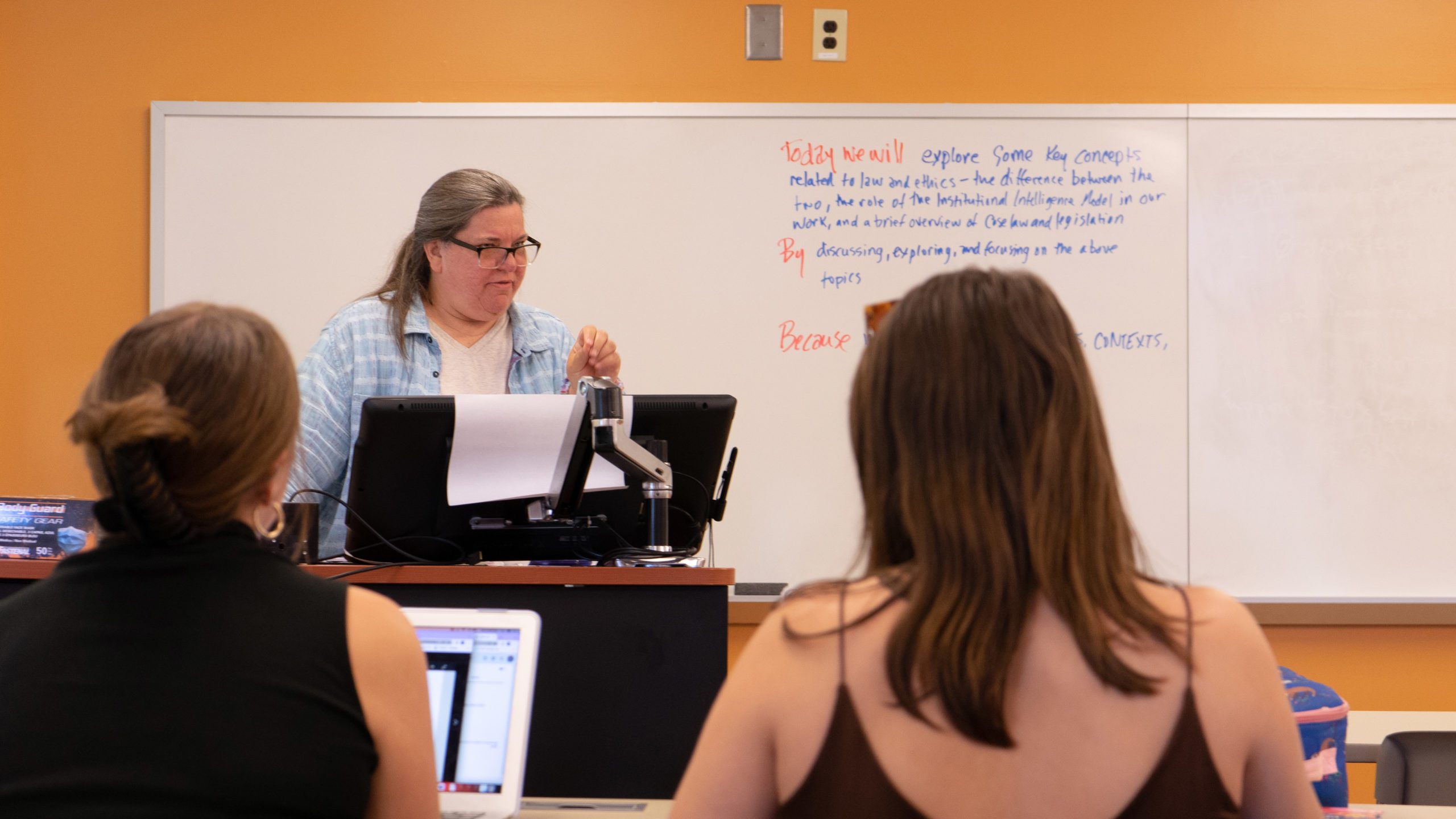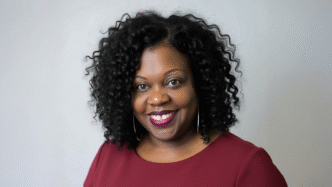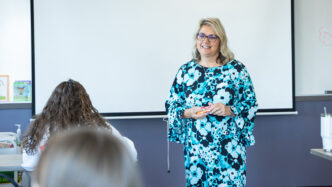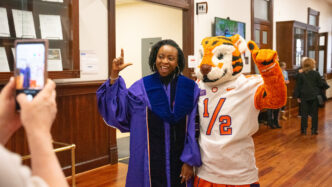Michelle Boettcher serves as an associate professor of higher education student affairs in the Department of Educational and Organizational Leadership Development. She teaches numerous graduate-level courses that foster a collaborative learning experience related to the preparation of student affairs professionals. She generally teaches student affairs law and ethics, the contemporary college student and governance in the M.Ed. and Ph.D. programs, but has taught more than 20 different courses at Clemson.
We caught up with Boettcher to explore her teaching philosophy, her approach to instruction and what she finds both challenging and rewarding about working with students.
What is your teaching philosophy?
My teaching philosophy centers student learning, and I see everyone in any class I teach as simultaneously teacher and learner. While I may have some content knowledge or professional experience the students do not, they have lived experiences that I do not. I joke with students that if a class goes well, it’s due to my preparation and expertise; if it does not go well, I say it is because they didn’t do their part. Ultimately, if we create a space where we are willing to take risks and share information and questions, that is an environment where we will learn the most.
To boil it down, I think of learning as an equation: individual expertise + content + mistakes + reflection = learning.
Many of us do our best learning as the result of making mistakes. I imagine my opinion on that is informed in part by my background as a conduct officer. I used to introduce myself during university orientation sessions as the “Coordinator of Out-of-Class Learning Opportunities.” To me, students who violate policy create opportunities for learning because of their decision-making. As a classroom educator, I continue to embrace mistakes as a part of the learning process.
What is your approach considering you only teach graduate students?
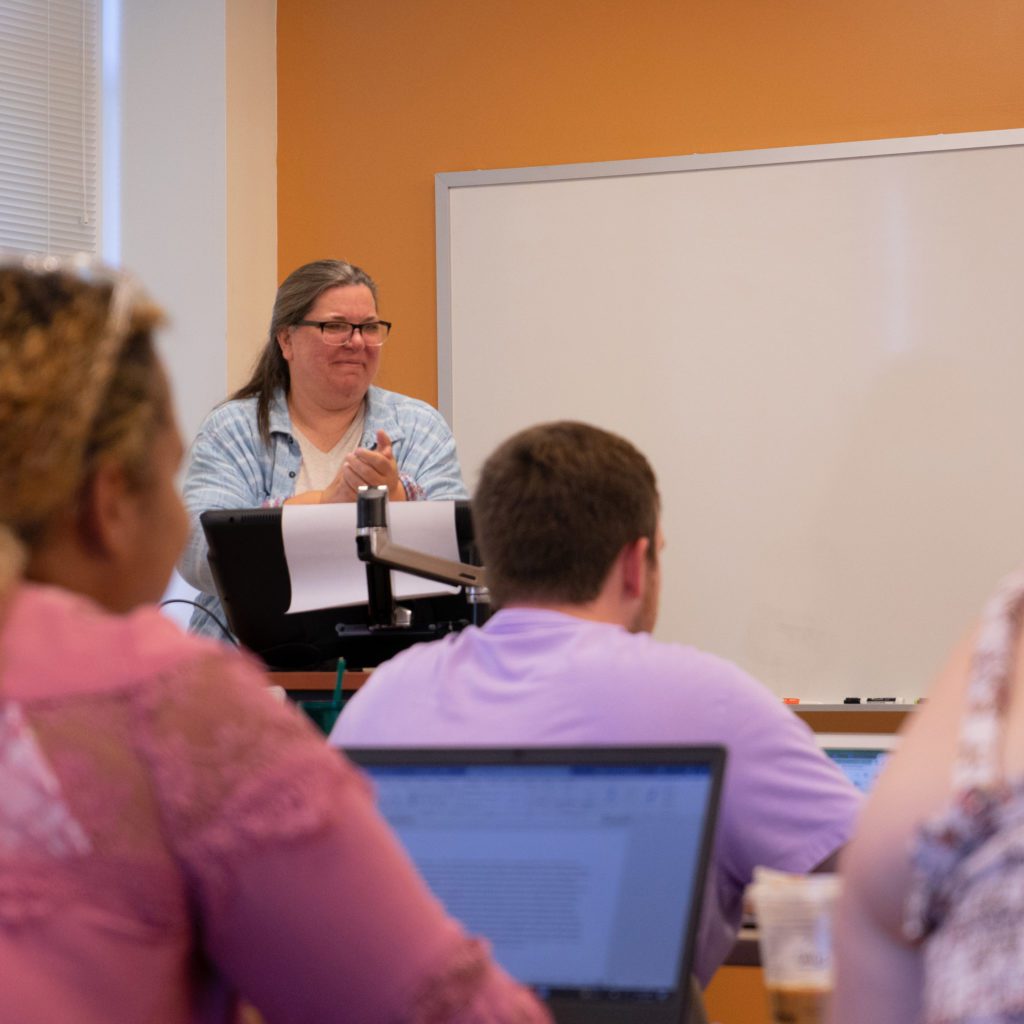
In graduate school, the students’ role in the learning process changes from memorization to meaning making. Because we are all expected to bring in areas of knowledge, we also are going to have different areas of interest. No course can cover every topic to the extent that each student might like. As a result, I ask students to come up with a personal learning objective for the course – to choose a topic related to the course content that is interesting or relevant to the work they will be doing after graduation. They then bring in additional information based on reading and independent research on the topic. This makes the class more interesting to them as individuals and richer for all of us who are learning together.
I actively seek ways for students to be engaged as both teachers and learners since we tend to learn more when we teach things. I work to incorporate popular culture and non-traditional texts in my work including film, television or streaming series, novels, podcasts, and a variety of other sources. I also solicit student feedback throughout the semester to determine what is working and what we can change to maximize the learning and discussion in our courses together.
Describe an effective approach you use in the classroom.
I started last spring using a “one-sentence lesson plan” for each class. On a whiteboard, I fill in the headings “today we will learn,” “by,” and “because” with information that will be covered in class. I was initially surprised at how much students enjoyed this overview. What we will cover and how is important, but they really appreciated the part about why we are focusing on specific elements each day. Sometimes the why section has to do with providing a foundation for future work and learning and other times it is about skills development for their work. Either way, just having that on the board as a point of reference has given students information that I was not providing earlier in my teaching. I have found that it encourages them to participate because the purpose for what we are doing is clear.
What is the most rewarding and most challenging aspect of teaching for you?
The most challenging part of teaching for me is the fact that I am an introvert and I do a lot of self-reflection. After class, I often focus on things I could have done better or missed opportunities. That can be exhausting.
Fortunately, that self-critique is balanced by what is most rewarding, which is how students engage with the material. I love it when students make connections between seemingly disparate ideas in class. They might see something happening in current events and relate it to what we have been discussing. Or maybe they watched an episode of a show and then broke down what was inaccurate about higher education in that episode or series. Similarly, it is rewarding when graduates reach out and share how they applied something they learned in class to what they are doing in their jobs. When they say, “Now I get why you stressed that,” it affirms that what I’m teaching is still relevant to the work.
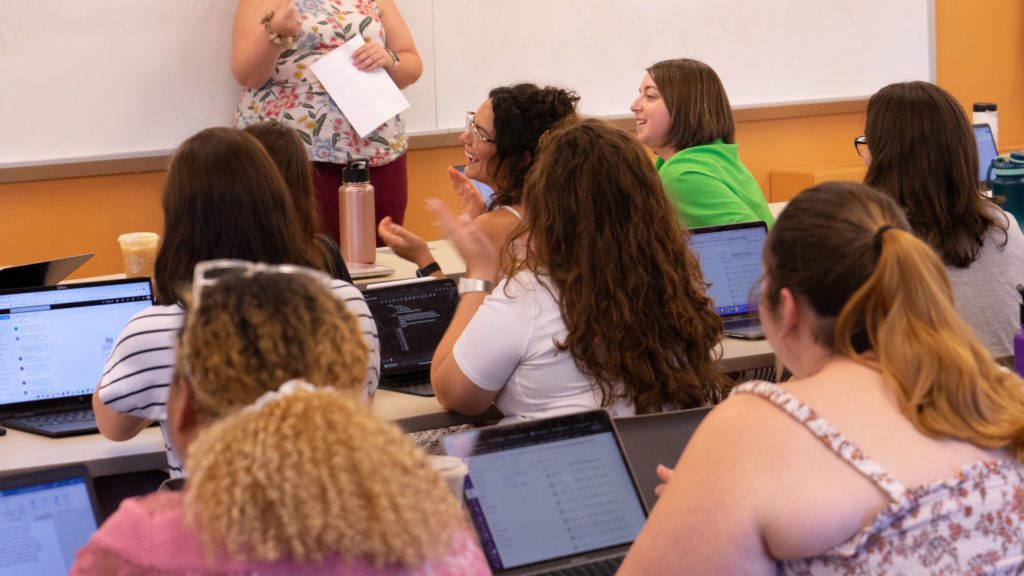
Name an educator that inspired you to teach.
Barbara Mack was a faculty member I had as an undergraduate student at Iowa State University who taught in the journalism program. She is someone I did not want to disappoint. As a result, I worked really hard to always be prepared for her class.
She taught the introductory journalism course at 8 a.m., which was in a lecture hall of about 400 people. She would call people out for sleeping, coming in late or not paying attention. She could make you feel small if you weren’t prepared, but she could also make you feel brilliant if you arrived having done the reading and homework. She taught the journalism law and ethics course when I took it, and now I teach the student affairs law and ethics course which is one of my favorite classes. I learned from her to do the reading and homework, come prepared to participate in class and show kindness in moments of distress. I am lucky to have had the chance to learn with her.
What do you enjoy doing when you are not teaching?
I enjoy photography and have a blog where I post my photos. I spend a lot of time driving and taking pictures of landscapes or interesting things in the area. I love to travel, and I read quite a bit. I also journal and write a lot of letters. Email and other more immediate forms of communication are great, but most of us still enjoy getting a note or card in the mail. Plus, it helps me reflect on what is going on in my life, if I’m spending enough time outside of work or if I need to adjust my priorities.
We also have a dog, Lily, who was my tenure present to myself. She is mostly lab with a little bit of boxer. She also helps me know when it is time to get up from the desk and do something else. She can be very convincing when she thinks it is time to go out and play.

